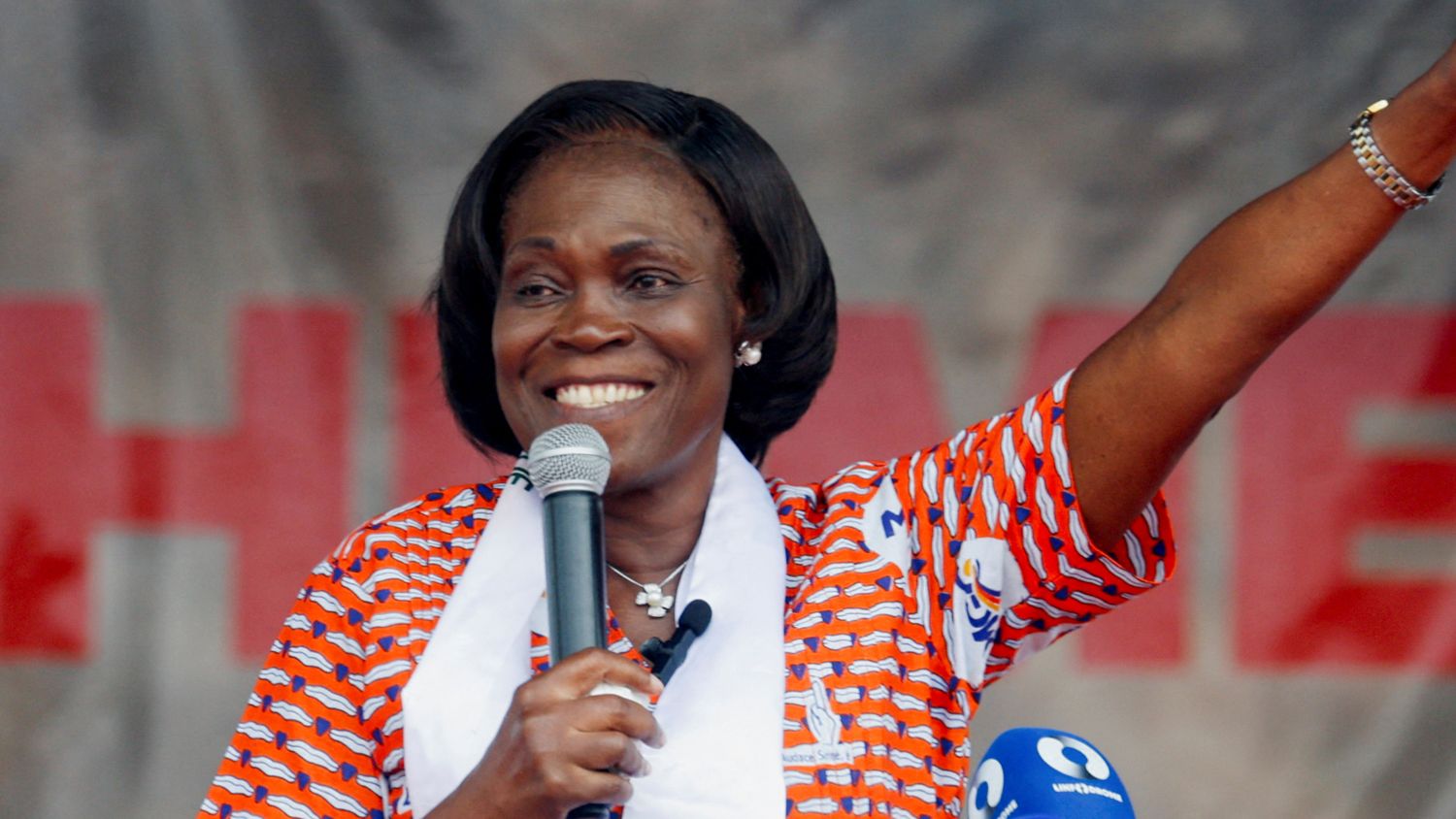
Three weeks before Ivorians head to the polls for the highly anticipated 2025 presidential election, Charles Blé Goudé has thrown his support behind Simone Ehivet Gbagbo.
The former youth minister and once-close ally of ex-president Laurent Gbagbo made the announcement on Saturday, October 4, following an extraordinary party convention held in Abidjan.
Blé Goudé, who remains ineligible to run due to his removal from the electoral roll, publicly endorsed Simone Gbagbo—Ivory Coast’s former first lady—as his candidate of choice for the October 25 vote. His party, the Pan-African Congress for Justice and Equality of Peoples (COJEP), overwhelmingly ratified this decision during the internal vote.
Of the 202 delegates registered for the COJEP convention, 166 cast their votes. Simone Gbagbo secured a commanding lead with 127 votes, representing 77% of ballots cast. She was followed by Ahoua Don Mello with 31 votes (19%), while Henriette Lagou received one vote and Jean-Louis Billon failed to obtain any.
“Our political coherence requires us to rally behind a candidate who best embodies the fight for change,” declared Charles Blé Goudé, emphasising Simone Gbagbo’s alignment with the Ivorian sovereignist movement.
This endorsement marks a significant pivot. In recent weeks, Blé Goudé had been seen cooperating closely with Ahoua Don Mello, even joining efforts to secure Don Mello’s candidacy. He had accompanied his team to file official documents, sparking assumptions that COJEP’s support was assured. The final decision, however, signals a return to the Gbagbo political lineage, with preference given to Simone, the ex-president’s former wife, over Don Mello, his former lieutenant.
In addition to backing Gbagbo, COJEP announced its departure from the Coalition for Peaceful Alternation (CAP-CI). Delegates argued the coalition “is not an ideological alliance and has no electoral purpose,” echoing a move recently made by Simone Gbagbo’s own party, the Movement of Capable Generations (MGC).
Blé Goudé’s decision may realign dynamics within the Ivorian opposition, potentially boosting Simone Gbagbo’s campaign. However, analysts warn that it could also inflame underlying tensions within the fractured opposition camp, where rival alliances are still being formed.
With the PDCI-RDA and PPA-CI launching a new “Common Front,” the next three weeks are expected to be pivotal in defining the contours of Ivory Coast’s political future.



